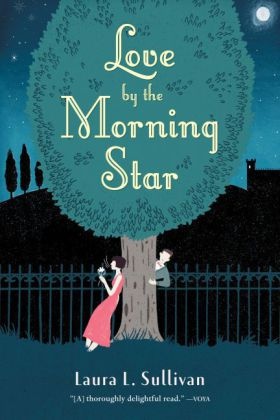Read more
Zusatztext "Intrigue, romance, and humor combine to produce a thoroughly delightful read." — VOYA "Hannah is a breath of fresh air both for her hosts and for readers, who will enjoy rooting for her." —Booklist "Sullivan's wry and evocative omniscient voice makes Hannah and Anna's escapades a pleasure to read." —Publisher's Weekly "Sullivan delights in leading readers through a jaunty muddle of romantic misfortunes." —Kirkus "A light and fun romance that should appeal to fans of Downton Abbey." —School Library Journal Informationen zum Autor Laura L. Sullivan is a former newspaper editor, biologist, social worker, and deputy sheriff who writes because storytelling is the easiest way to do everything in the world. She lives on the Florida coast, but her heart is in England. Klappentext In 1938, Germany is no place for a half-Jewish girl, so teenage cabaret singer Hannah goes to the grand country estate of Starkers, where she expects to be received as a distant relative. British bombshell Anna is supposed to enter the household as a kitchen maid and spy for her father's Nazi sympathizer friends. But there's a mix-up. When Anna is introduced as family and Hannah is banished to the kitchen, the novel erupts into a delightful and suspenseful comedy of errors. Romance, history, and philosophy sparkle and waltz in this brilliant book. Leseprobe November, 1938 Anna, Who Is Not the Heroine It takes so much work being better than everyone else, Anna Morgan mused. Of course, on one level, superiority is a matter of one’s birth. No, she hastily amended, recalling her father’s origins as a grocer: not birth, but blood. Rank and money don’t matter. What did it say above the National Fascist Front (NAFF) headquarters? “Rank is but the guinea-stamp; the man’s the gold for all that.” She didn’t mind—almost didn’t mind—that she wasn’t of noble birth, because she had enough pride simply in being British. There was nothing better than that. But to appear instantly and unequivocally superior to the untrained eye, that took some work. She had natural advantages, of course, being statuesque and fair, with high-piled blond curls arranged in careful bedroom disarray. Her hourglass lines were achieved through exercise and will; her elegant, floor-length attire suggested leisure and lofty social status. Her features were large, her jaw strongly defined, with those Pre-Raphaelite bones that can make a girl either a stunner or a bumpkin, depending on what she does with them. Anna had been learning what to do with them for seventeen years, and had it down to a science. She knew she was beautiful—if a little frightening, but that was a part of her beauty—and if she ever forgot it she had only to stroll down the street and learn it again from all the admiring stares she received. From earliest childhood, she’d always had ideas about what she could be, but her seed would have been scattered on barren soil if her grocer father had not discovered his gift for oratory and hate. Several years ago, a Russian Jew had opened a small grocery store around the corner, and through diligence, friendliness, the ability to get oranges year-round, and a most un-English lack of rats and black-beetles in his storeroom, managed to lure away a good-size chunk of Mr. Morgan’s clientele. From that moment Mr. Morgan conceived a violent hatred of all things foreign and all things Jewish. He threw in communism for good measure, liberated a soapbox from the store room, and began to spout off to anyone who would listen to him. His eloquent vitriol caught the attention of Reginald Darling, who thought Oswald Mosley’s British Union of Fascists too soft and coddling, and he was recruited into...

